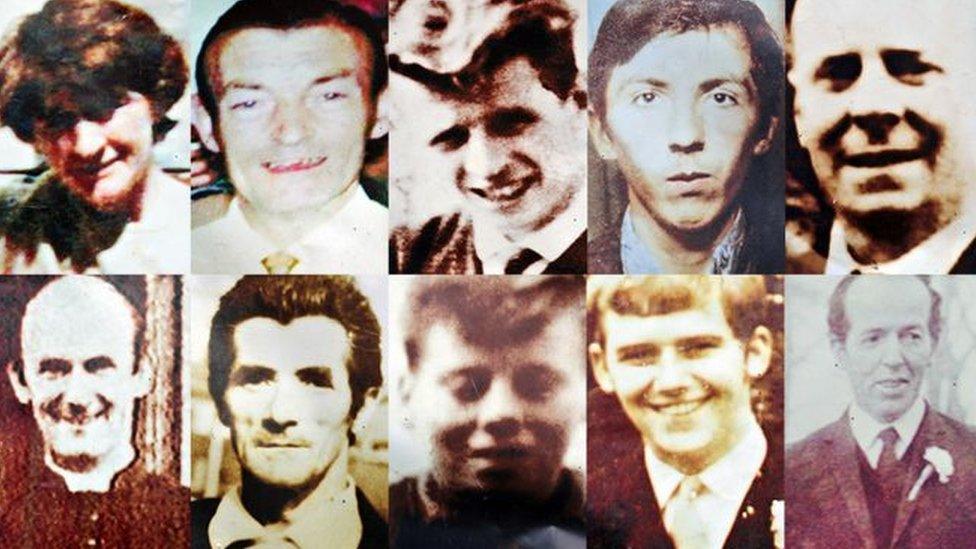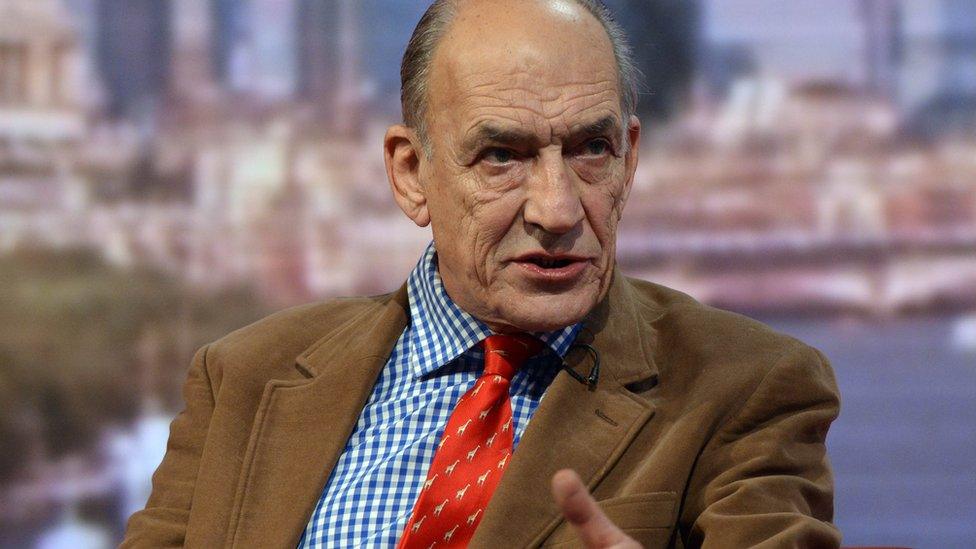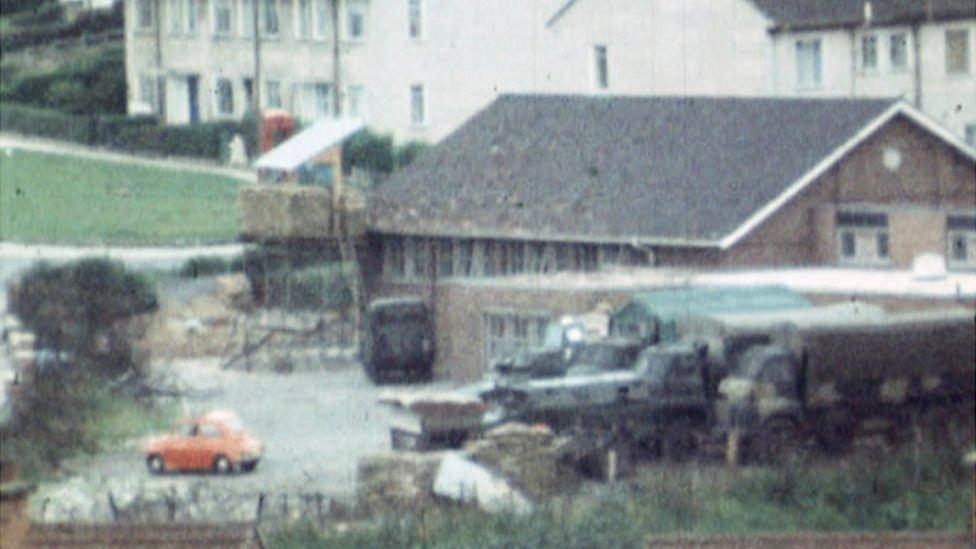Ballymurphy inquest: Gen Sir Mike Jackson denies 'cover-up'
- Published

An inquest is examining the deaths of 10 people killed in shootings at Ballymurphy in August 1971
The former head of the Army has denied there was a "cover-up" over the shooting dead of 10 people in Ballymurphy.
Gen Sir Mike Jackson said it was a "preposterous accusation".
He spoke at an inquest into the events in west Belfast over three days in August 1971.
Barrister Michael Mansfield QC asked him why soldiers involved in the shootings were not interviewed by the Royal Military Police at the time.
"Was there a cover-up?" the barrister asked.
"You don't have an explanation as to why there are no interviews with any of the soldiers who fired, do you?"
Gen Jackson, a captain with the 1st Battalion of the Parachute Regiment based at Palace Barracks in Holywood at the time, answered: "It simply doesn't add up."
"I don't know, it's trying to prove a negative... it may have been the whole system was overwhelmed by the mayhem of that week.... but I do know we don't do conspiracies."
That remark was greeted with laughter from the public gallery.
Earlier on Thursday, Gen Jackson told the inquest he had "no doubt" that a gun battle involving the Army and the IRA took place on the morning of 11 August 1971.
He said it lasted two to three hours, involving soldiers and about 20 gunmen.
Gen Jackson, who described his role as "a hybrid of community relations and press officer", said he heard, but did not see, a Thompson sub-machine gun being fired.
That was not a weapon used by the military. Gen Jackson described it as an "enemy weapon".
'It's a tragedy'
Sean Doran, counsel for the coroner, asked the general about an article in the Belfast Telegraph on 11 August 1971, in which a captain was quoted.
The article described the fatal shooting of two "gunmen" in Ballymurphy.
The deceased were John Laverty and Joseph Corr - the inquest heard no weapons were found on or near them and their families say their names were blackened by being labelled as gunmen.

Gen Sir Mike Jackson was a captain with the 1st Battalion of the Parachute Regiment at the time of the Ballymurphy shootings
"It appears likely that you were in fact the captain that gave the press briefing at that time," Mr Doran said.
"I wouldn't disagree. [But] I have no specific recollection of such an interview with the Belfast Telegraph," replied Gen Jackson.
"But I was at this time talking to reporters not only in Northern Ireland, but the mainland and international."
Later, when asked about briefing the press on the "gunmen", Gen Jackson conceded: "In retrospect, of course I should have said alleged."

Soldiers from the Parachute Regiment were based at Henry Taggart Army base
Gen Jackson was given an opportunity to address the past reports of the two men as "gunmen".
He said: "Let me say to the families, who so long ago lost their loved ones, for me it's a tragedy.
"It's a tragedy which is hugely regrettable, but I would also say that anybody who loses their life as a result of violent conflict is also a tragedy.
"I too have lost friends, so be it.
"My sympathies to you and I'm sorry that it is only now, after so long, that you feel you can come to terms."
Asked about the source for the Belfast Telegraph article describing the two people shot as "gunmen", Gen Jackson admitted he hadn't seen any shooting, or the bodies of the deceased and injured.
"That [information] would have been based on the information provided to me by the company commander," he said.
Saville report
The inquest has already heard evidence from a former commanding officer, Sir Geoffrey Howlett, who said he now believes that most, if not all, of those killed over the three days were not IRA members.
Five months after the Ballymurphy shootings, Gen Jackson was present in Londonderry on Bloody Sunday, when soldiers opened fire on civil rights protestors, killing 13 people.
He gave evidence at the Saville Inquiry, and following the publication of the Saville report, apologised for the events of Bloody Sunday.
Gen Jackson was appointed Chief of the General Staff (CGS) of the Army in 2003, taking up the post a month before the Iraq war. He retired in 2006.
Evidence at the Ballymurphy inquest is coming to a close in the next few weeks. In its latest phase, the inquest is looking at the deaths of John Laverty, 20, and Joseph Corr, 43.
- Published20 May 2019

- Published10 May 2019
